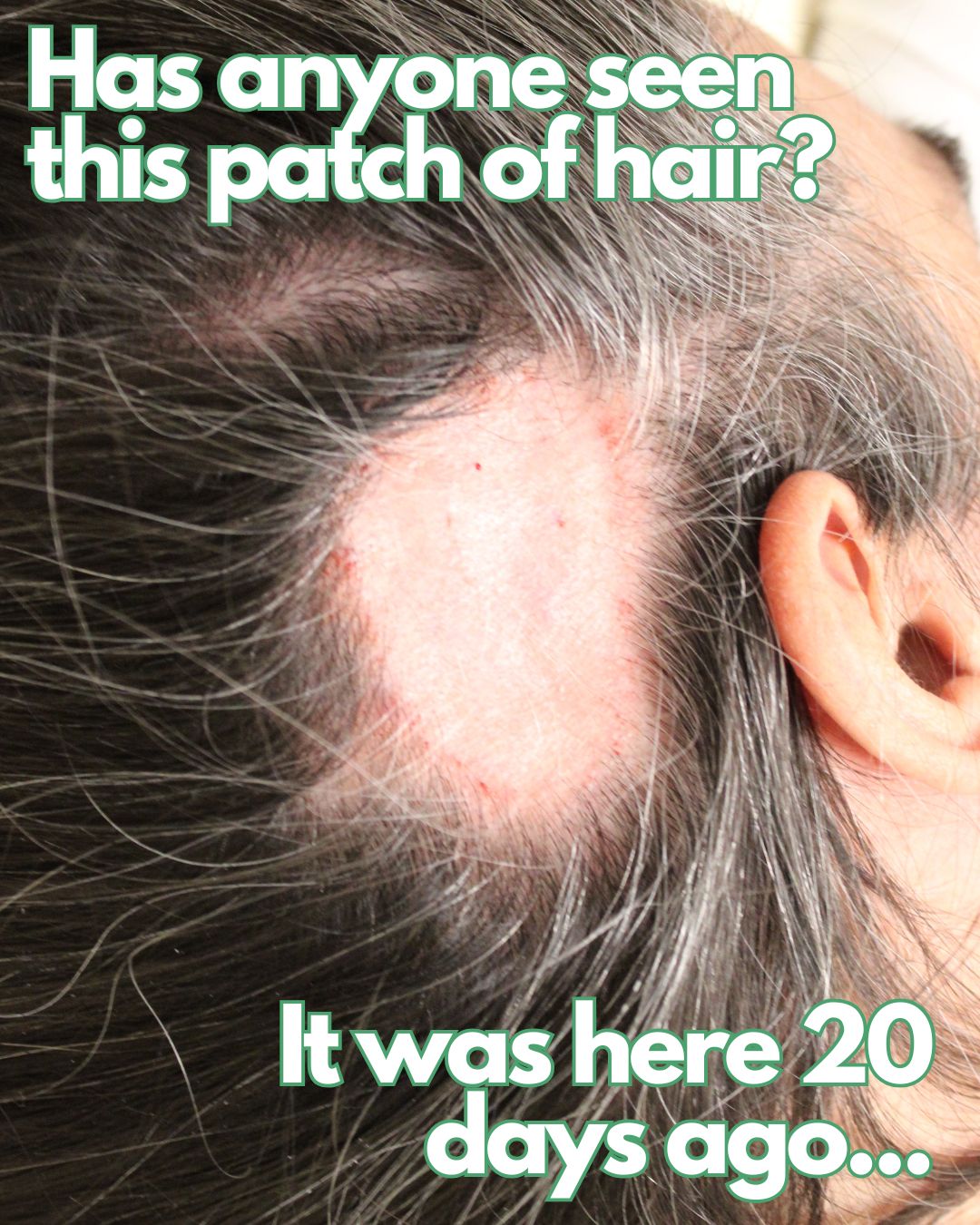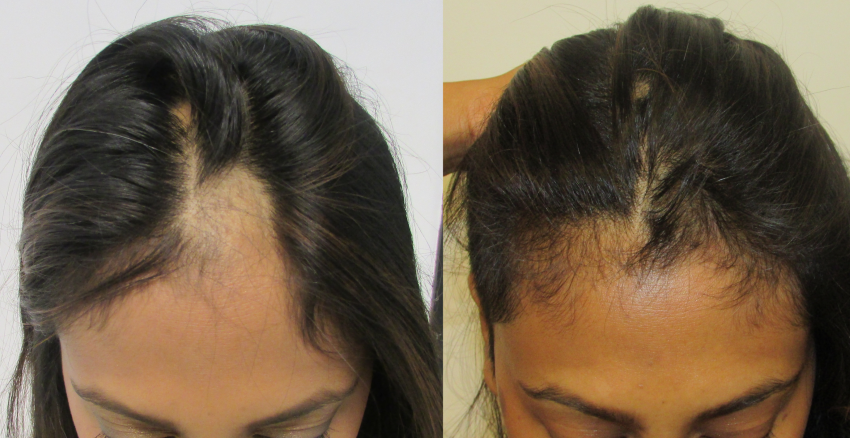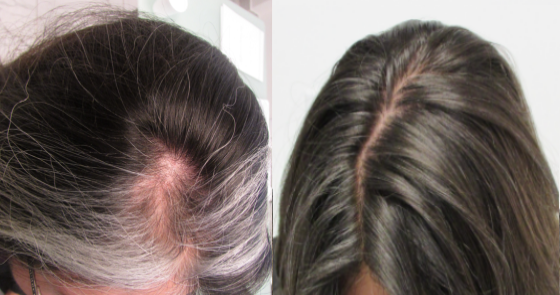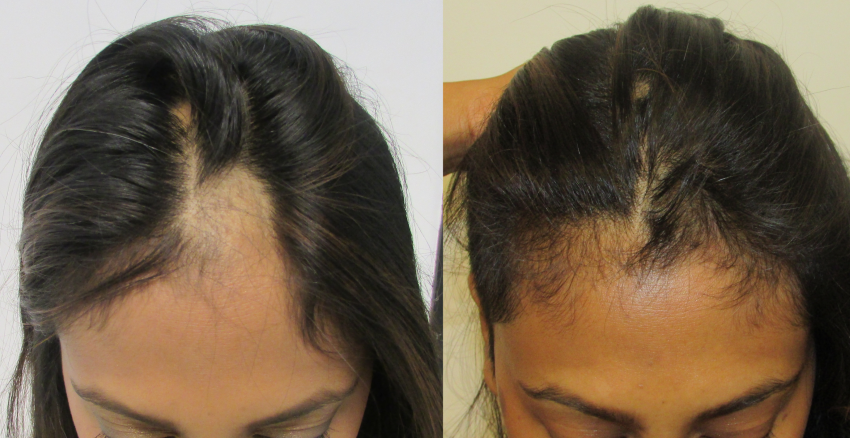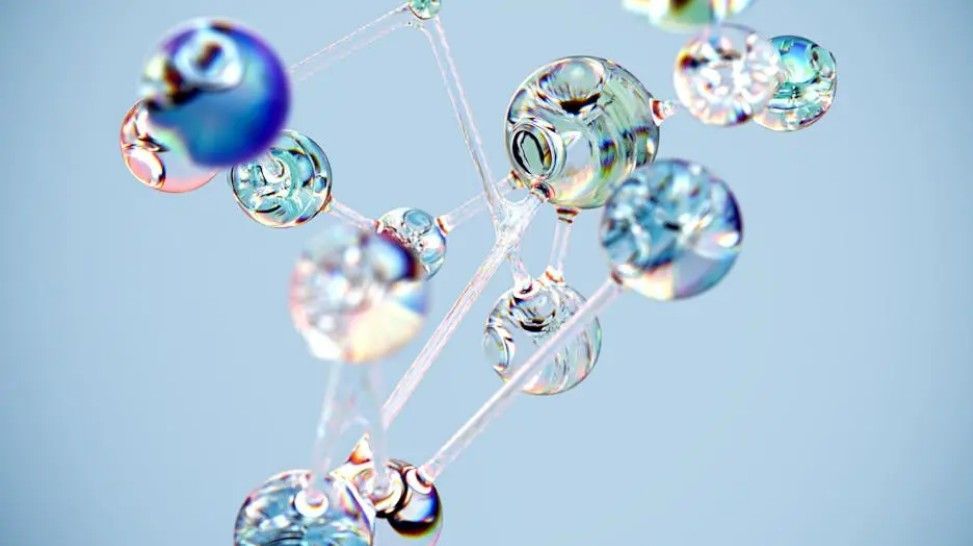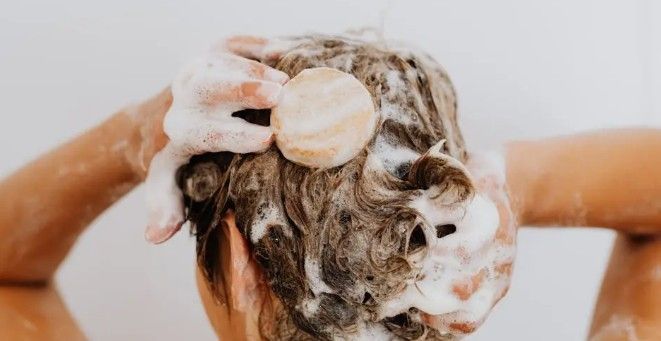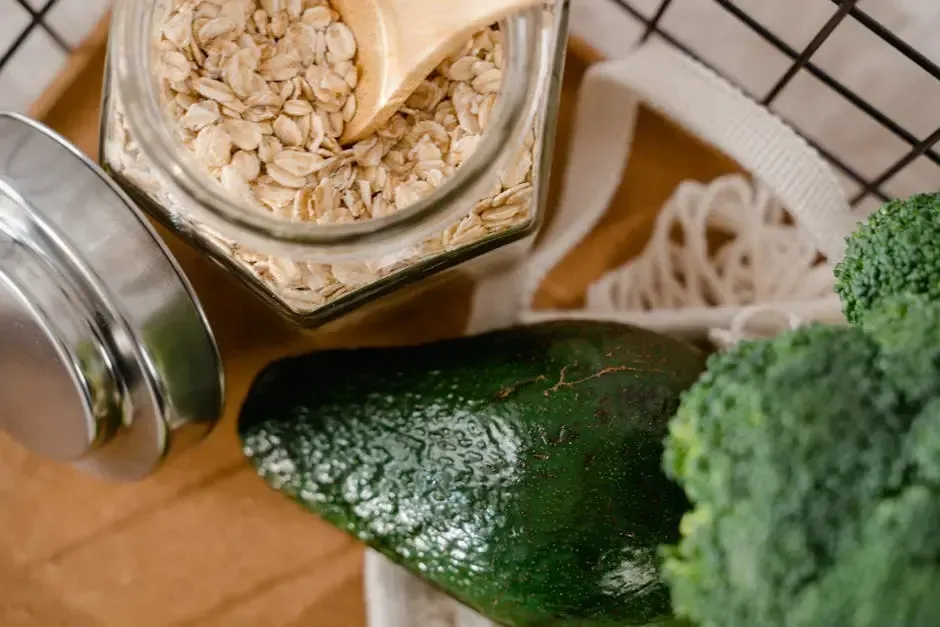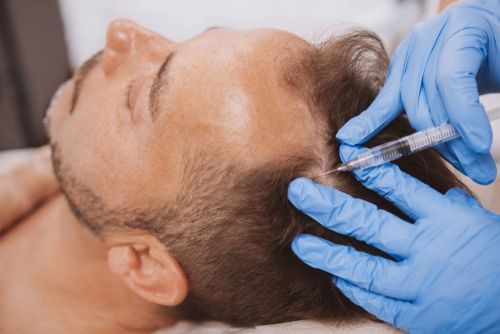What is AAA - Auto-Immune Alopecia Areata?
🚨
Early treatment is crucial! If Alopecia Areata is left untreated for too long, the
hair follicle remains dormant, and the body may eventually
reabsorb it, permanently destroying it. This means the hair
will not grow back, ever.
Seeking treatment
as soon as possible gives you the best chance of
full hair regrowth.
What Does Alopecia Areata Look Like? Signs & Symptoms
Alopecia Areata typically presents as:
✔
Round or oval bald patches appearing suddenly on the scalp
✔
Bald patches in facial hair (especially beards in men)
✔
Thin, short, or broken hairs (sometimes called “exclamation point hairs”)
✔
Occasional itching or tingling in affected areas
✔
Rapid hair shedding triggered by stress or illness
Some individuals may experience a
single episode of patchy hair loss, while others see it recur or progress over time.
The key to
preventing permanent damage is
early intervention.
What Causes Alopecia Areata?
Alopecia Areata occurs when the immune system mistakenly
attacks hair follicles, causing
hair to stop growing and fall out. Several factors can
trigger or worsen this condition, including:
✅
High Stress Levels – Emotional or physical stress (like illness or trauma) can trigger autoimmune flare-ups.
✅
Nutritional Deficiencies – Lacking key nutrients like protein, iron, and essential fatty acids can weaken hair follicles.
✅
Underlying Health Conditions – Conditions like thyroid disorders or autoimmune diseases can contribute.
✅
Post-Illness Hair Loss – Many individuals experienced sudden Alopecia Areata during
COVID-19 due to both
physical illness and mental stress.
🚨
If left untreated for too long, the body will eventually absorb dormant follicles, leading to irreversible hair loss. Seeking treatment early maximizes your chances of
full regrowth.
Can Alopecia Areata Be Cured? What Science Says About Hair Regrowth
🔬
Research shows that with the
right treatment plan, hair regrowth is possible—but here’s what most people don’t realize:
❌
Alopecia Areata is rarely present in isolation.
Most people with Alopecia Areata
also have additional hair loss types (like
Androgenetic Alopecia or Telogen Effluvium). If you
only treat Alopecia Areata and ignore other underlying hair loss factors, you
won’t see 100% regrowth.
✅
At Stop and Regrow, we take a different approach.
We personalize treatment plans by analyzing each patient’s
individual hair loss profile, medical history, and bloodwork to treat
every contributing factor—not just one.
Results? Many of our clients start seeing
new hair growth in as little as 6–12 weeks! 🎉
Alopecia Areata Success Stories: Before & After Hair Regrowth
We’ve helped thousands of people
regrow their hair and restore their confidence. Here are just a few of their stories:
📷
🗣
Shonali,
Age 29: “I struggled with patchy hair loss for over a year, and every expert and doctor I saw, including my friends told me it was untreatable and I should just give up. After following Stop and Regrow’s plan, my hair grew back fully in less that 12 weeks—and even healthier than before!”
📷
🗣
David,
Age 36: David's hair loss journey was compounded by stress, leading to both male pattern baldness and alopecia areata, along with premature white hairs. Now, just 17 months into his personalized Stop and Regrow treatment program, his hair has not only grown back thicker and healthier but is also regaining its natural color and shine. A true transformation!
📷
🗣
Rodney, Age 50: “I thought I’d never see my hair regrow fully grow in again. the patches of alopecia were so large. I had them in my beard too. The results after 4 months were incredible. Thank you, Dr. Nettles!”
Want to see if we can help you too?
Schedule Your Free Consultation Here!
How Stop and Regrow Treats Alopecia Areata
Our unique approach uses
Precision Medicine to tailor treatments to each individual. Here’s what sets us apart:
✔
Comprehensive Testing – We analyze bloodwork to identify nutrient deficiencies, hormone imbalances, and underlying autoimmune triggers.
✔
Targeted Regrowth Protocol – We use safe, clinically-backed treatments designed to
reignite dormant hair follicles.
✔
Stress & Nutrition Optimization – We address lifestyle factors that contribute to hair loss, helping to prevent future episodes.
✔
Personalized Treatment Plans – No two patients are the same, so
your treatment is tailored specifically to you.
Curious if our treatment is right for you? Click below to book a
complimentary consultation and take the first step toward full hair regrowth.
👉
Book Your Free Hair Loss Assessment Now
FAQs About Alopecia Areata & Hair Regrowth
📌
Can stress really cause Alopecia Areata?
Yes! High stress levels have been linked to autoimmune flare-ups, making Alopecia Areata worse. Managing stress can help promote hair regrowth.
📌
Does Alopecia Areata only affect the scalp?
No. While it’s most common on the scalp, it can also cause bald patches in
facial hair (beards), eyebrows, and even body hair.
📌
How long does it take to see results?
Most of our patients start noticing regrowth in
6–12 weeks, but full recovery depends on the severity of hair loss and whether other conditions are present.
📌
Can Alopecia Areata go away on its own?
In some cases, yes, but for many people, it
recurs or worsens over time. Early treatment is the best way to ensure full regrowth.
📌
Can Stop and Regrow help me?
Yes! If you’re experiencing hair loss,
we can help identify the cause and create a personalized regrowth plan. Click below to get started!
👉
Claim Your Free Consultation
Final Thoughts: Stop and Regrow Can Help You Take Control of Your Hair Health
If you're dealing with
patchy hair loss, sudden thinning, or stubborn bald spots, don’t wait for it to
get worse.
At
Stop and Regrow, we use science-backed,
holistic treatments to help you
regrow your hair naturally—without gimmicks or one-size-fits-all solutions.
🚀
Click here to schedule your free consultation and start your journey to hair regrowth today!
👉
Book Your Free Hair Regrowth Consultation Now

